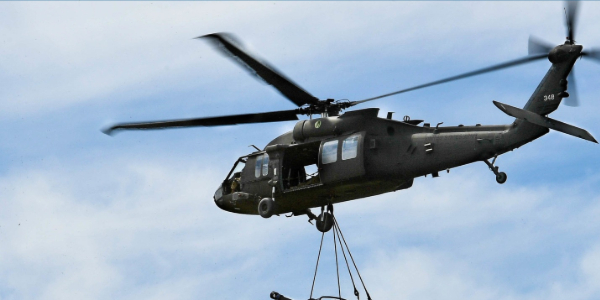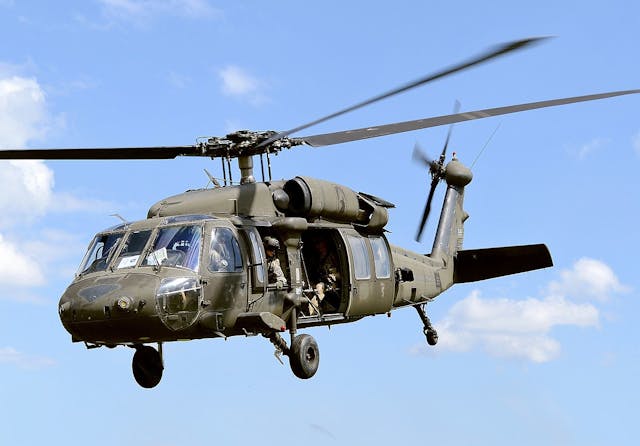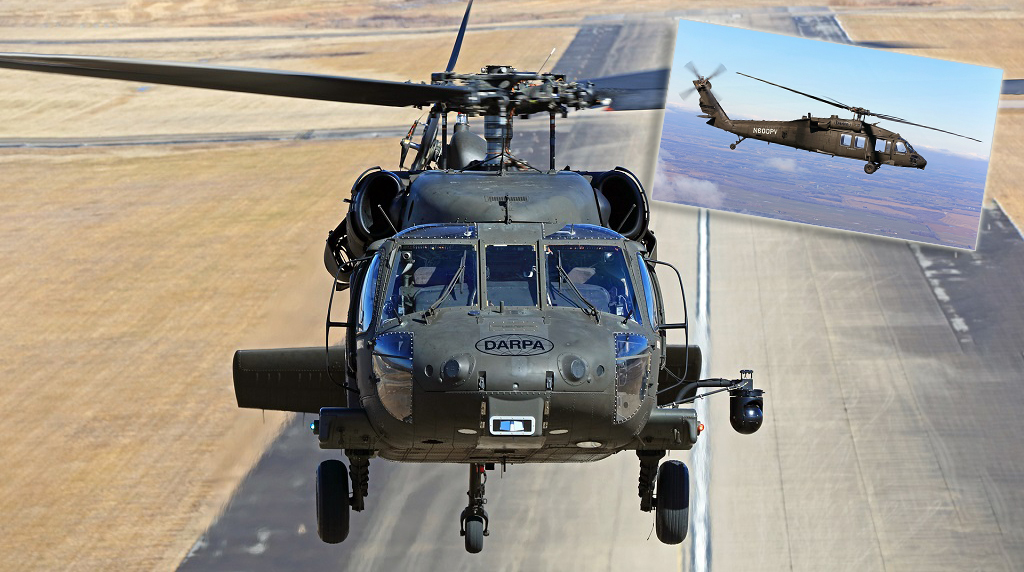UH 60 Helicopter Summary: Everything You Need to Know
The Impact of Lasting Practices on the Future of Aircraft Operations and Emissions Decrease
As the air travel industry encounters boosting examination over its environmental effect, the fostering of sustainable methods becomes a critical path towards future aircraft operations and discharges reduction. Advancements in lasting air travel gas and developments in crossbreed propulsion innovations stand at the forefront of this improvement, promising substantial reductions in greenhouse gas exhausts. The effective combination of these initiatives hinges on a selection of variables, including regulative frameworks and industry collaboration. The concern remains: exactly how will these evolving methods improve the dynamics of air travel and add to an extra lasting future?

Introduction of Sustainable Practices
Sustainable techniques in aircraft procedures encompass a series of methods intended at lowering ecological impact while keeping functional effectiveness. These practices are crucial in the aeronautics market's commitment to minimizing its carbon impact and adhering to worldwide ecological criteria. Key initiatives include optimizing trip paths to lower fuel intake, boosting maintenance protocols to guarantee aircraft run at peak performance, and carrying out innovative modern technologies such as winglets and lightweight products that enhance aerodynamics.

Engaging and training personnel on sustainability methods also play an essential role, promoting a society of environmental duty within organizations. Generally, the combination of these lasting techniques not only helps in reducing exhausts yet additionally boosts the lasting feasibility of the air travel market, ensuring it satisfies the demands of both clients and regulative bodies while adding to international sustainability goals.
Cutting-edge Fuel Alternatives
Many cutting-edge gas choices are becoming pivotal services to decrease the air travel sector's reliance on standard nonrenewable fuel sources. Among these options, Lasting Aviation Fuels (SAFs) have gained significant attention as a result of their prospective to decrease lifecycle greenhouse gas emissions by approximately 80% contrasted to standard jet gas. SAFs are derived from numerous feedstocks, consisting of waste oils, agricultural residues, and even algae, making them a versatile option for the sector.
An additional encouraging option is hydrogen fuel, which, when utilized in gas cells, creates just water vapor as a by-product. This zero-emission prospective presents a considerable possibility for decarbonizing flight operations, particularly for short-haul flights and local aircraft. In addition, electrical propulsion systems are being checked out, leveraging battery technology to power aircraft. While existing battery capability restrictions range and haul, continuous developments may quickly make electric trips sensible for certain applications - uh 60.
Finally, biofuels originated from biomass are being examined, providing a renewable alternative that can be blended with typical fuels. Collectively, these ingenious fuel choices represent a crucial step toward achieving a lasting aviation ecological community, lining up with international discharges decrease targets and enhancing the sector's environmental stewardship.
Technical Developments in Air Travel

Just how can technical improvements improve the future of aviation? Developments such as electrical and hybrid propulsion systems are at the center, promising significant reductions in fuel intake and greenhouse gas exhausts.
Furthermore, the execution of innovative materials, such as light-weight composites, contributes to enhanced aerodynamics and fuel efficiency. The usage of expert system and artificial intelligence in flight operations optimizes course preparation and minimizes fuel burn by enabling real-time changes based on climate and web traffic problems. Additionally, the growth of self-governing and from another location piloted aircraft systems stands to reinvent cargo and guest transport, possibly raising efficiency while decreasing human error.
Furthermore, sustainable air travel modern technologies, consisting of innovative air web traffic administration systems, can simplify operations and minimize congestion, bring about lower discharges throughout flight. These developments jointly stand for a standard change in aeronautics, guaranteeing a future where sustainability and functional performance are intertwined, thereby sustaining the market's commitment to decreasing its ecological impact.

Governing Framework and Compliance
Taking find out here now into account the expanding emphasis on ecological stewardship within the air travel industry, the regulative framework regulating aircraft procedures is developing to promote sustainable techniques. Regulative bodies, such as the International Civil Aeronautics Organization (ICAO) and numerous national aviation authorities, you could try here are introducing strict guidelines intended at lowering exhausts and enhancing operational efficiency.
These guidelines commonly include the fostering of Lasting Air travel Gas (SAF), which has been recognized as a key part in accomplishing lower carbon impacts. Additionally, conformity with these regulations needs airlines to implement innovative modern technologies and functional methods, such as maximized flight paths and improved air web traffic monitoring, to minimize fuel intake.
Additionally, the Our site enforcement of discharges trading plans and carbon countering efforts is ending up being significantly prevalent, engaging airline companies to keep track of and report their emissions precisely. Non-compliance can cause considerable fines, hence pressing drivers to prioritize sustainability in their service models.
Eventually, the evolving regulative landscape not just drives development and financial investment in eco-friendly modern technologies however additionally fosters a society of accountability within the air travel sector. As these frameworks proceed to develop, the concentrate on lasting techniques will be indispensable to achieving the market's lasting environmental goals.
Future Fads in Aircraft Procedures
As the aeronautics industry adapts to a progressively rigorous regulatory atmosphere, future patterns in aircraft procedures are readied to focus on ingenious options that even more enhance sustainability and performance - uh 60. Secret growths will likely consist of the adoption of advanced air website traffic management systems, which make use of real-time information and expert system to enhance trip courses, lowering gas usage and emissions
An additional considerable fad is the boosted assimilation of sustainable aeronautics gas (SAFs) These alternatives to standard jet gas, originated from eco-friendly sources, can considerably decrease lifecycle greenhouse gas discharges. The market's commitment to SAFs will likely increase as airline companies team up with gas manufacturers to ensure availability and cost-effectiveness.
In addition, the push towards electrification and hybrid propulsion systems is gaining momentum. Emerging airplane layouts will include these innovations, supplying quieter and a lot more reliable procedures, specifically for short-haul trips.
Final Thought
The adoption of lasting air travel fuels, coupled with developments in electric and hybrid propulsion systems, is important for decreasing lifecycle greenhouse gas discharges. Enhancing flight courses and embracing ingenious modern technologies contribute to a quieter and a lot more environmentally pleasant aeronautics industry.
Technologies in sustainable air travel gas and advancements in crossbreed propulsion modern technologies stand at the forefront of this improvement, encouraging considerable decreases in greenhouse gas exhausts.Various ingenious gas alternatives are emerging as essential remedies to lower the aviation market's dependence on typical fossil fuels - uh 60. Among these options, Lasting Aviation Fuels (SAFs) have gotten substantial focus due to their potential to decrease lifecycle greenhouse gas discharges by up to 80% contrasted to standard jet gas.Another significant trend is the raised integration of sustainable air travel fuels (SAFs) The adoption of sustainable aeronautics fuels, paired with improvements in hybrid and electric propulsion systems, is important for minimizing lifecycle greenhouse gas exhausts